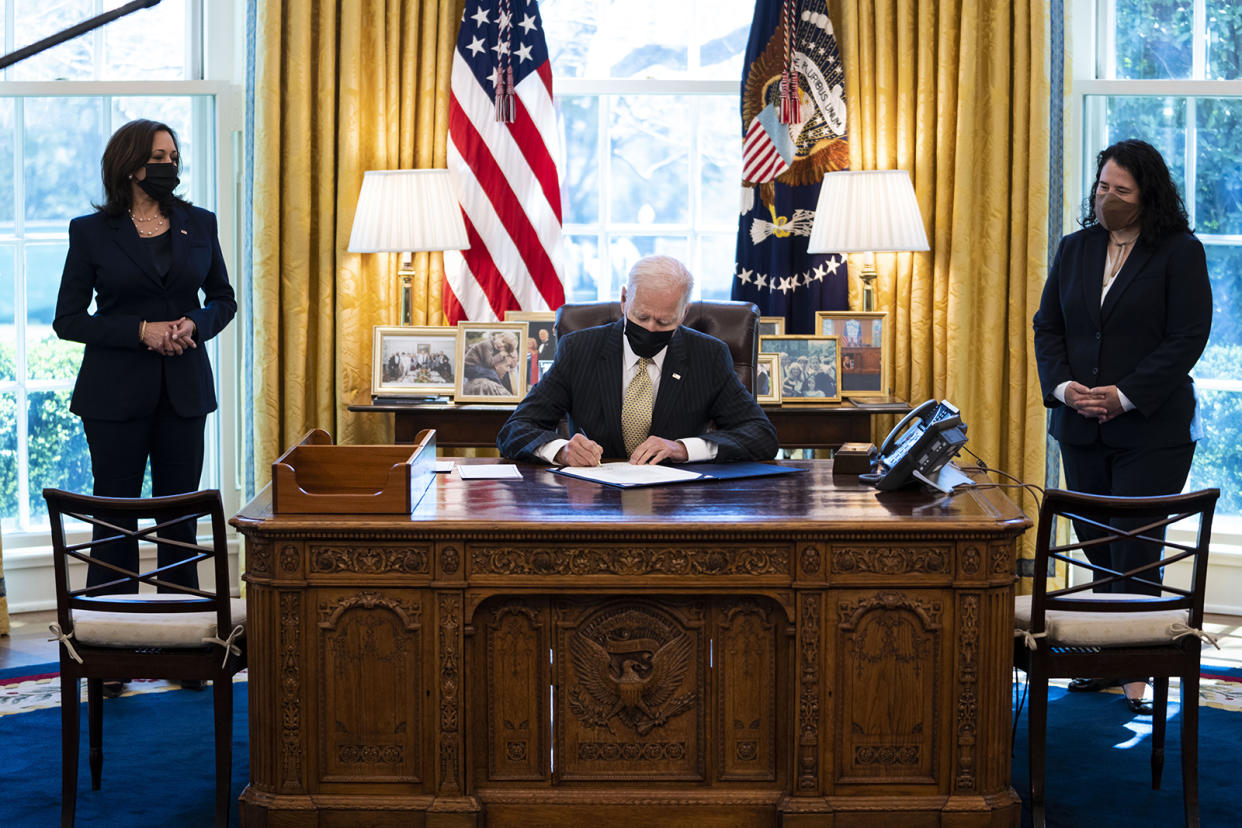Baltimore man sentenced to prison in ‘outrageous’ $18 million pandemic fraud scheme

- Oops!Something went wrong.Please try again later.
BALTIMORE — A Baltimore man who prepared applications for nearly $18 million in fraudulent pandemic relief loans in exchange for kickbacks received 7 years in prison Tuesday at his sentencing in federal court.
The scheme led by Ahmed Sary, 46, is the largest pandemic fraud seen in the District of Maryland, a prosecutor said, involving 85 fraudulent Paycheck Protection Program loan applications and 57 fraudulent Economic Injury Disaster Loan applications.
Both emergency programs were intended to relieve economic damage and save jobs amid the coronavirus pandemic.
All of Sary’s fraudulent loans were funded, according to the U.S. Attorney’s Office, resulting in losses of $17.9 million.
“The losses are high,” Assistant U.S. Attorney Paul Riley said. “They are staggering.”
Sary was ordered to pay back the money, though much of it is believed to have been spent in his home country of Egypt, Riley said. Sary has been a naturalized American citizen since 2007, according to information presented in court, but often traveled to Egypt to visit family.
Sary used the money he obtained to open a beachfront restaurant in Alexandria, Egypt, called Sary’s Kitchen, to buy other property in Egypt, and to fund travel and luxury hotel stays, the U.S. Attorney’s Office said.
According to Sary’s plea agreement, he and several co-conspirators prepared false pandemic relief loan applications for borrowers in exchange for a kickback, usually about 20% to 30% of the loan amount. The applications inflated the businesses’ number of employees, payroll costs, and revenues. They also included cases in which the business effectively did not exist.
Once the loans were paid out, the recipients would provide Sary multiple checks with the payee’s name left blank. Sary would write a name on each check and deposit them, the U.S. Attorney’s Office said. Sary also helped some loan recipients set up payroll services to make it appear the funds were being used for legitimate purposes.
The businesses Sary assisted are not identified in charging documents, though Riley said in court the conspiracy “touched various parts of the United States.”
Sary also received more than $950,000 in PPP and EIDL funds for his own purported businesses, including a financial services company and a meatpacking business, among others. None of them existed “in any legitimate capacity,” the U.S. Attorney’s Office said.
Two of Sary’s co-conspirators, who participated in the scheme to a smaller degree, previously pleaded guilty and received two years in federal prison, court records show. Another alleged co-conspirator is awaiting trial.
Riley said Sary was the “mastermind” of the scheme, which netted him millions of dollars in kickbacks. The government has not been able to locate much of the missing money because it is believed to be in Egypt, Riley said.
U.S. District Judge Richard D. Bennett told Sary that he could be eligible for a sentence reduction if he helps locate and return the money.
“This situation here is more than distressing, it is just outrageous,” the judge said. “As of this moment, no one can tell me where all the money went.”
Bennett sentenced Sary to three years of supervised release, beginning with a year of home detention, to begin after his seven-year prison sentence. The prison term was less than the 9 1/2 years requested by prosecutors and fell below federal sentencing guidelines, but was higher than the five-year term the defense sought.
In brief remarks, Sary apologized and said he is remorseful.
“I’m sorry to put myself in this position and my family,” he said. “It is out of my character.”
His lawyer, Julie Reamy, said Sary faced financial pressure when his parents became ill and required medical care before their deaths in 2018 and 2021. Reamy also said Sary’s accountant brought Sary into the conspiracy and helped prepare the loan applications for Sary’s businesses.
Riley declined to say in court whether the accountant has been charged, but pointed out that he received far smaller kickbacks than Sary.
Bennett remarked repeatedly on the breadth of the scheme, calling it “one of the largest pandemic fraud cases” he has seen.
“It’s mindboggling,” the judge said.
The two pandemic relief programs Sary defrauded were the targets of widespread theft schemes, according to a recent review by the U.S. Small Business Administration Office of Inspector General. The SBA distributed a total of $1.2 trillion through the PPP and EIDL programs, of which over $200 billion may have been fraudulently obtained.
“This means at least 17% of all COVID-19 EIDL and PPP funds were disbursed to potentially fraudulent actors,” the review concluded.
_____

